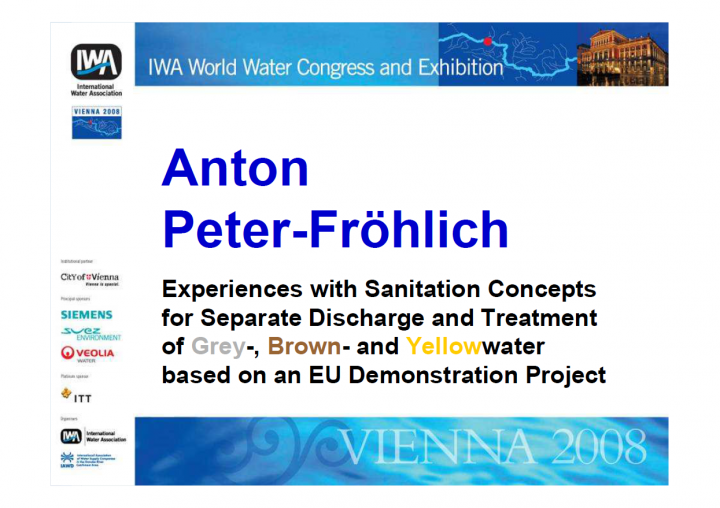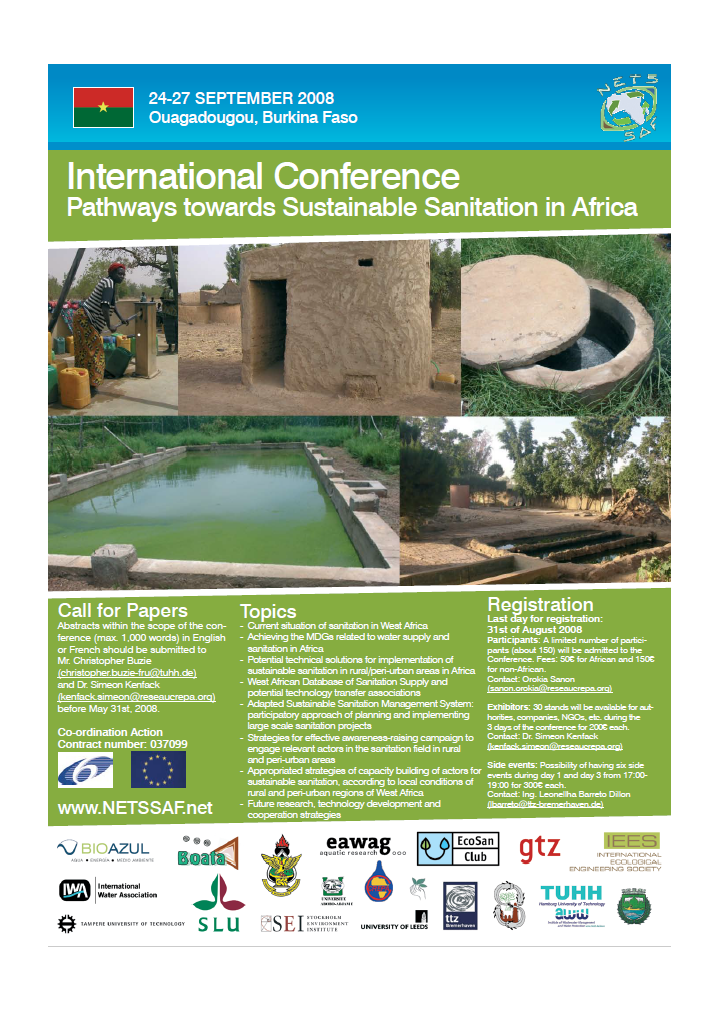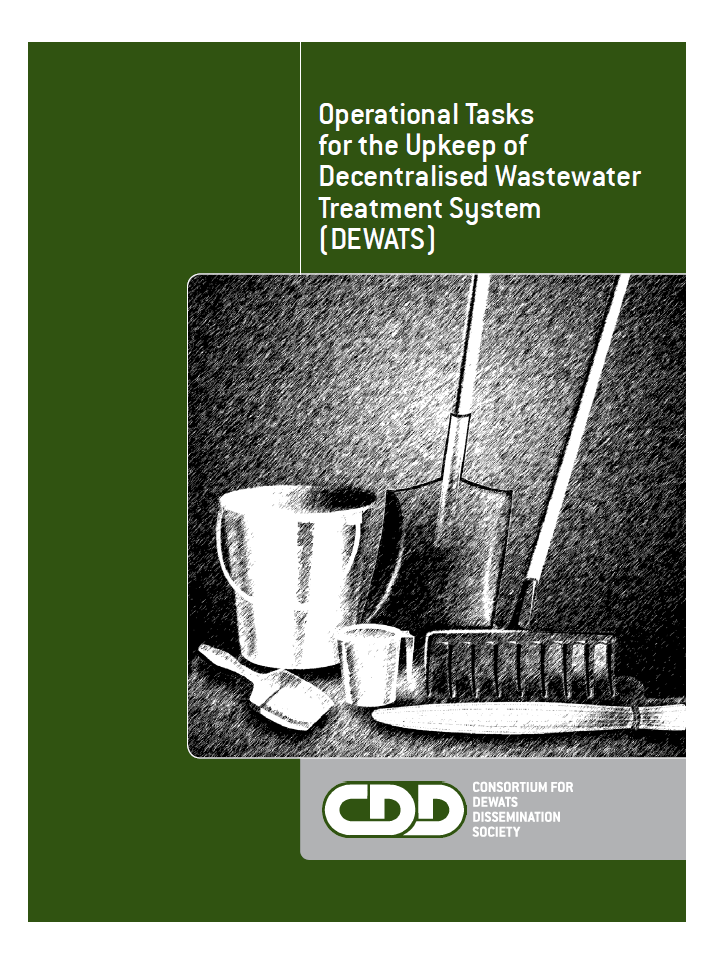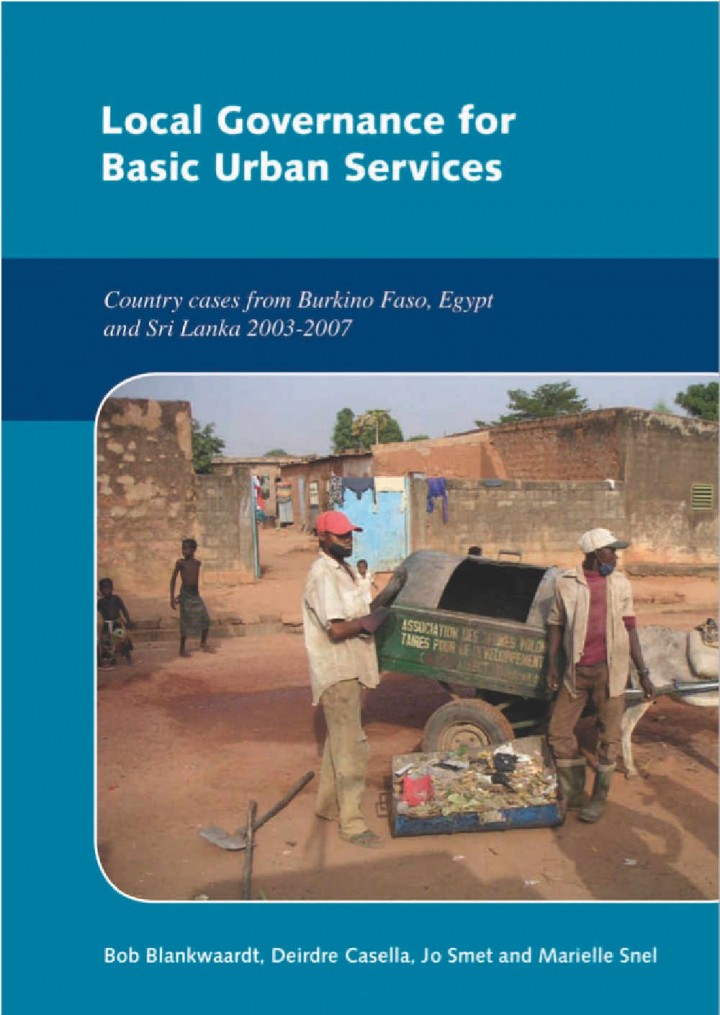Searching for information on Sanitation Workers?
The Sanitation Workers Knowledge + Learning Hub is the best source for all current news, trends, articles and updates on sanitation workers rights around the world.
It is always better to use water from a clean source that’s stored in a safe way. However, this is not always possible, especially in an emergency. Something may have made the source unclean or unusable. Or a population may
not have access to clean containers or practice good hygiene behaviour. One approach to this problem is treating water at the household level. This is often a temporary …
Granular activated carbon (GAC) filters have been used for decades to remove various kinds of organic micropollutants (MP), disinfectant by-products and taste and odor (T&O) compounds from water by adsorption. In recent years chemical oxidation by ozonation was implemented in many treatment plants before GAC filtration. During ozonation a substantial fraction of the natural organic matter (NOM) …
The “India Mark II Handpump” was developed in India more than 30 years ago and it is designed for lifting water from deep wells up to 50 m. Strict maintenance of deep-well pumps is very important to keep them operational. Therefore the pump users must be trained and willing to make regular maintenance in a disciplined manner. Spare parts that require regular replacements must be easily …
This document will address RAINs guidelines towards water quality and will give practical
guidelines to improve and maintain an acceptable water quality of harvested rainwater for
drinking purpose. It will describe criteria for water quality of harvested rainwater, placed within
the socio-economic and geographical context of RAINs target countries. The most practical
approach of improving …
Decentralized drinking-water systems are an important element in the process of reaching the Millennium Development Goals, as centralized systems are often deficient or non-existent in developing and transition countries (DC and TC). Most water-quality problems are due to hygiene factors and pathogens. A range of decentralized systems is available to counter these problems, including thermal …
The objective the Compendium is threefold:
1. Expose the Compendium user to a broad range of sanitation systems and innovative technologies;
2. Help the Compendium user understand and work with the system concept, i.e. the process of building a complete system, by iteratively choosing and linking appropriate technologies;
3. Describe and fairly present the technology-specific advantages and …
The “Designing for Behaviour Change” workshop responds to community health managers’ and planners’ need for a practical behavioural framework that aids them in planning their projects strategically for maximum effectiveness. It is built upon the BEHAVE Framework, developed by the Academy for Education Development (AED). The workshop trains participants to apply AED’s BEHAVE Framework to …
This handbook has been developed from experiences with Community-Led Total Sanitation (CLTS) since December
1999. These have been in Bangladesh, India, Cambodia, Indonesia, Mongolia, Nepal, China and Pakistan in Asia; in
Uganda, Zambia, Ethiopia, Tanzania, Kenya and Sierra Leone in Africa; in Bolivia in South America; in Yemen in the
Middle East; and in other countries. Users of this handbook …
This step-by-step manual is designed to help personnel involved in the implementation of Water, Sanitation and Hygiene (WASH) activities improve their knowledge and skills to facilitate community engagement processes. The principal aim of this manual is to enable practitioners and facilitators/trainers involved in hygiene promotion to adapt innovative methods in learning, planning with groups and …
This training manual is a practical guide to be used by teachers and school health assistants who are involved in the promotion of water, sanitation and hygiene practices (WASH). School WASH education is a specific part of the wider school health education program that deals only with water and sanitation-related health problems in and around the school.
The manual has been designed to provide …
The video is a documentary about the Community Led Total Sanitation (CLTS) approach, an innovative methodology for mobilising communities to completely eliminate open defecation and take their own action to become open defecation free. It shows projects in Bangladesh and interviews with one of its pioneers Dr. Kamal Kar.
It has been produced 2008 within the BBC earth report series on …
Convenors: Food and Agriculture Organization of the United Nations (FAO), German Agency for Technical Cooperation (GTZ), International Fund for Agricultural Development (IFAD), International Centre for Soil Fertility and Agricultural Development (IFDC), International Water Management Institute (IWMI), Stockholm Environment Institute (SEI), Swedish University of Agricultural Sciences (SLU), United …
The Sanitation Challenge Conference was deliberately aimed to create a dialogue between civil, process, agricultural and environmental engineers; urban planners, sociologists, economists, and political scientists who are involved in international sanitation research and implementation. It took place in Wageningen, the Netherlands from 19. to 21. May 2008.
Furthermore, this conference tried to …
IWA World Water Congress and Exhibition took place from 7.-12. September 2008 at the Austria Centre in Vienna. It brought together about 4.500 international water / wastewater professionals and visitors, who discussed the latest developments in sustainable water and wastewater management and offered the possibility to exchange knowledge.
In addition to over 1000 papers presented, a number of …
The International Conference titled "Pathways towards Sustainable Sanitation in Africa" constitutes the most relevant event held under the project NETSSAF "Network for the development of Sustainable Sanitation in Africa", a Coordination Action supported by the European Union under the Sixth Framework Programme (FP6). A well prepared team organised this event successfully which was celebrated in …
From 14-17 October 2008, the German Federal Institute for Geosciences and Natural Resources (BGR) convened the international symposium on “Coupling Sustainable Sanitation and Groundwater Protection” in Hannover, Germany, in order to highlight the immense problems of groundwater pollution due to absent or inadequate sanitation facilities in developing countries.
Together with international …
From 14-17 October 2008, the German Federal Institute for Geosciences and Natural Resources (BGR) convened the international symposium on “Coupling Sustainable Sanitation and Groundwater Protection” in Hannover, Germany, in order to highlight the immense problems of groundwater pollution due to absent or inadequate sanitation facilities in developing countries.
Together with international …
This Manual is intended for use by the beneficiaries of DEWATS, in particular caretakers and operators. Each operational task is addressed in terms of where and when it will occur, how the task should be performed and why it is needed. Simple information about DEWATS modules and how they function is outlined in the Appendix 1.0. For further information which may be beyond the scope of this …
Effective drainage is important in emergencies when there is a risk of flooding or there is a risk of poor environmental health conditions developing from standing water, muddy conditions, or erosion. It would not usually be the first priority in the initial stages of an emergency, but should be considered after the immediate water, sanitation and hygiene needs have been met. Sites which have …
A septic tank takes raw sewage in, allows the solids to settle (sludge) and allows the remaining liquid to flow into the surrounding soil by means of a soakaway. Scum on the surface is also prevented from leaving the tank. Microorganisms in the anaerobic environment in the tank digest the sludge and scum. The system consists of several stages, supply to the tank, the tank itself and the soak …
The achievement of the Millennium Development Goals and other international and national development targets hinges on capacities of individuals, organizations and societies to transform, in order to reach their development objectives. While financial resources, including official development assistance, are vital, they are not enough to promote sustainable human development. Without supportive …
Capacity development helps to strengthen and sustain this foundation. UNDP defines it as the process through which individuals, organizations and societies obtain, strengthen and maintain the capabilities to set and achieve their own development objectives over time. It is the ‘how’ of making development work better and is at the heart of UNDP’s mandate and functions. The UNDP Strategic …
This short booklet presents a summary of IRC’s activities within the framework of the Basic Urban Services (BUS) Initiative, carried out over a five-year period (2003-2007) through an Agreement of Cooperation with UNCHS (UN-Habitat). The activities formed an integral part of, and contribution to, the implementation of the Second Phase Dutch Support to the Sustainable Cities Programme (SCP). …








































